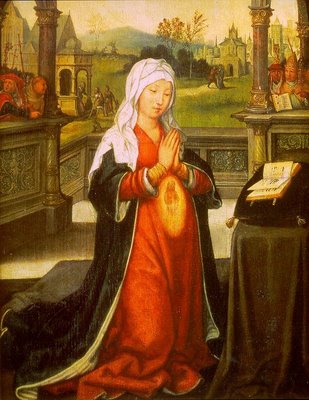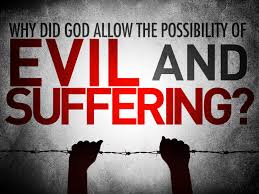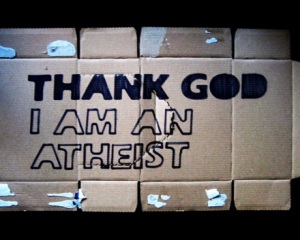There is No Such Thing as a Thankful Atheist
Anyone who believes that he has gifted himself with his own being, that he is a self-caused being, that he is causa sui, is irrational. And if he really believes that and not just be contrarian or stubborn for the sake of it, he is certainly insane.
Until the scientist learns to give thanks, he will never get to the answer of contingent existence.
To confront the reality of our contingent existence means–if we are to use our highest form of thought–that we give thanks, that we be grateful. And this, ultimately, yields to faith, what G. K. Chesterton called "faith in receptiveness," a faith in receptiveness which gives rise to a receptiveness to faith.
When each of us confronts the raw fact "I exist," "I am," we also know that we need not have existed. We know, in fact, that there was a time that we did not exist, a time that we were not. And we can infer with absolute certainty from those who die about us and from our understanding of nature and time, that there will be a time where we will not exist, at least not in the way we do now.

Behold, I was brought forth in iniquity, and in sin did my mother conceive me. Psalm 51:5
Many people today deny the reality of original sin. Modern thinkers claim that evolution disproves it. Some object to the idea of inheriting sin from our parents, while others simply deny sin itself. Some Christians claim that the Bible never teaches it and so on. However G.K. Chesterton while still an Anglican wrote in his book, Othrodoxy, that original sin is the most obvious of all Christian doctrines.
According to the Catechism of the Catholic Church (CCC), the doctrine of original sin is in some sense the reverse side of the doctrine of Redemption (CCC 389). In Genesis 2-3, God created man in His Image and established our first parents – Adam and Eve – in His friendship. This friendship included Sanctifying grace – the gift of holiness and eternal life. Adam, however, freely chose to live apart from God by trusting instead in the knowledge of good and evil – wanting to be like gods. Adam rejected God through disobedience and lost this friendship for himself and us. This loss is original sin (Gen 3:22ff; CCC 396-399).
The concept of original sin is not exclusively Catholic. Even though some Evangelical Protestants may shutter at the term, they readily acknowledge the fall of mankind and accept Jesus Christ as their Savior. Now without original sin, there would be no need for a Savior. The story of Adam and Eve found in the Book of Genesis is inherited from our Hebrew heritage (Gen. 3). Even the ancient Greek pagans had an inkling idea of original sin and imperfectly expressed it in the tale of "Pandora’s Box."

Naked I came from my mother’s womb, and naked shall I return; the Lord gave and the Lord has taken away; blessed be the name of the Lord! Job 1:21
Perhaps the most popular argument against the existence of God is based on the timeless question: "If there is truly a good God, then why is there evil in the world?" Typically the argument runs as: "Since our world is full of evil and a good, all-powerful God would never allow for evil, God therefore cannot exist." This argument involves more emotion (usually anger) than reason, but the question is important to consider. It can be phrased many ways and a few will be considered here.
First we must consider the meaning of evil. There are two kinds of evil: moral and physical. Moral evil is willful sin, while physical evil is natural harm. Examples of moral evil are murder, adultery, fornication, theft, sorcery, abortion…(Didache 2:2). Examples of physical evil are famine, illness, natural disasters and death. Now evil is not something in itself, but a lack of something that should be present, e.g. a lie lacks in truth. God does not create evil since it is not a thing to be created. Evil is an imperfection, lack or void in God’s creation.
Focusing first on moral evil, the question could be phrased as: "If there is a good God, then why did He create morally evil people?" In considering this question, we must realize that God does not create evil people (Gen. 1:26-31). Being all-knowing, God does knowingly create people who will be sinners, but knowledge and control are different. God created us with the gift of free will – the ability to willfully choose Him or reject Him. We choose to sin – to reject God – through willful disobedience. This rejection is a void in God’s plan for us.

By JAY CHESHES NYTimes traveler – I was finishing an aperitif on the porch at Villa Clara while other guests tossed pétanque balls in the nearby yard. The hotel’s 4-year-old namesake cozied up to her papa, showing off her latest crayon creation. “Oh, c’est magnifique,” said Olivier Gougeon, a French chef and an owner of the property with his wife, Marie-Hélène, an editor of a French-language home décor magazine.
The tiny boutique hotel, its restaurant and guest rooms stocked with Parisian antiques, opened last year around the corner from an Asterix chicken shack and across the street from its neighborhood boucherie. But this was not Marseille or Lyon, it was the eastern edge of Beirut.
“A Frenchman can easily live in Beirut without feeling displaced,” said Mr. Gougeon, who moved to the Lebanese capital from Paris in 1999, as he sipped local wine in Villa Clara’s leafy backyard after cooking a dinner of crispy-skinned duck confit and old-fashioned île flottante.
For more than a century, through all manner of turmoil, including a 15-year civil war and, more recently, ongoing conflict in neighboring Syria, a distinctly French character has pervaded the city. Much of it is the legacy of the French colonial period — the mandate that lasted from 1920 to 1943 — but a cultural kinship goes back much further than that.




